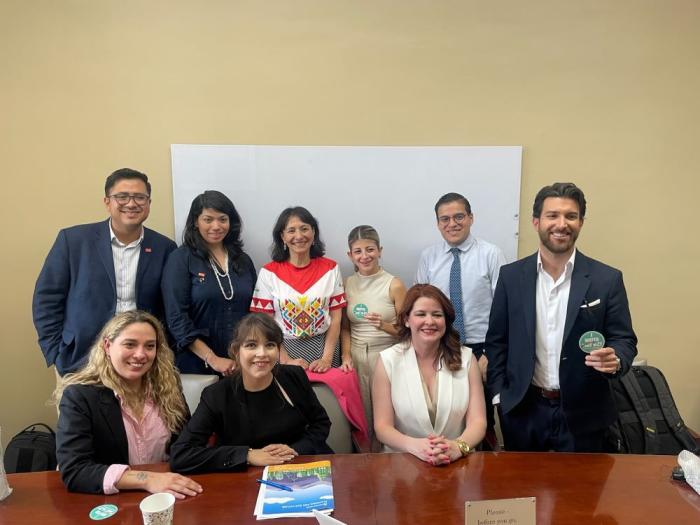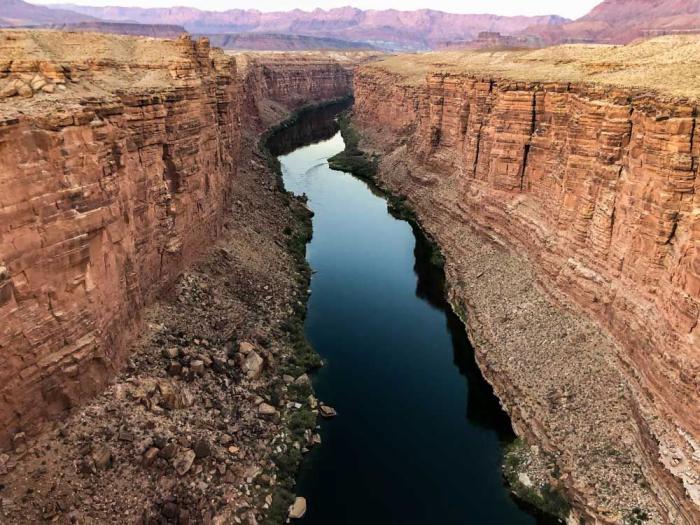Water flows beyond language, borders
When Angela Bricmont, Denver Water’s chief financial officer, was asked to meet with a delegation of local, state and federal officials from Mexico, she wanted them to feel welcome.
So, she delivered her presentation in Spanish.
“My great-grandparents spoke Spanish, but my parents’ generation was encouraged not to speak the language,” said Bricmont, who grew up in Trinidad, near the Colorado-New Mexico border.
“So, I learned Spanish in school. And then I really learned it when I studied abroad.”
Bricmont oversees more than 100 employees responsible for the utility’s financial health. She also currently serves as vice chair on the Denver Urban Renewal Authority Board and was appointed in 2020 to the Environmental Protection Agency’s Environmental Financial Advisory Board, a position she was recently reappointed to for a two-year term ending in 2026.
In 2017, the World Bank invited her to speak with financial leaders in Chengdu, China, to explain how Denver Water uses bonds to finance necessary, but expensive, infrastructure projects.
Bricmont prepared for the presentation to the Mexican delegation by spending time with Spanish content on Denver Water’s website and news site, TAP.
“I can speak Spanish, but I don’t really speak water utility Spanish,” she said with a laugh. “And the preparation worked. They had an interpreter available to help, but we didn’t need one.”
The group of eight young public officials were on a trip organized by the American Council of Young Political Leaders. Since 1966, the council has run international programs for emerging leaders in the U.S. and around the world in partnership with the U.S. Department of State.
The delegation on the trip included a city councilor from the city of Salamanca northwest of Mexico City, the chief of staff for the governor of the Yucatán state and the undersecretary of social welfare for the state of Oaxaca.
Bricmont talked to the group about Denver Water’s focus on ensuring a safe, clean reliable water supply for its customers across the metro area, and how that revolves around conserving water, capturing and storing snowmelt in mountain reservoirs and also using recycled water.
Meet the people of Denver Water, ensuring a clean, safe supply of drinking water for 1.5 million people — daily.
“Those three areas are our three-legged stool for how we prepare for the future, and I also talked about how taking the long-term view provides the best possible outcome for our customers and future generations,” Bricmont said.
The group also wanted to know about Denver Water’s charter, approved by Denver voters in 1918, creating an entity that would operate independently from city government, keeping water service separate from local politics. To this day, Denver Water is a public agency funded by water rates and tap fees, not taxes.
They asked how Denver Water serves the needs not only of its own customers but thinks about the people beyond its service area.
“I talked about our Lead Reduction Program, and how that’s setting a national standard for protecting our customers from lead and how we accomplished it by partnering with stakeholders across our diverse communities,” Bricmont said.
“And I told them about the work we do on regional and national committees, sharing our knowledge from the technical details to how we invest in our system for the future, and also how we’ve been engaged in discussions around the future of the Colorado River,” she said.
As a thanks, the group gave Bricmont a jersey honoring María Lorena Ramirez, an Indigenous ultra-distance runner from Mexico who became known internationally in 2017 when she was the fastest woman to run a 50-kilometer race known as the Ultra Trail Cerro Rojo — and she did it wearing huaraches, finishing the 31-mile trail in a time of seven hours, three minutes. Ramirez races in her trademark long skirt.
“Meeting this group, talking to them and hearing what they were concerned about … the entire experience was wonderful,” Bricmont said.
“And it was a reminder to me that water is not contained within a political boundary. It’s all one water.”



